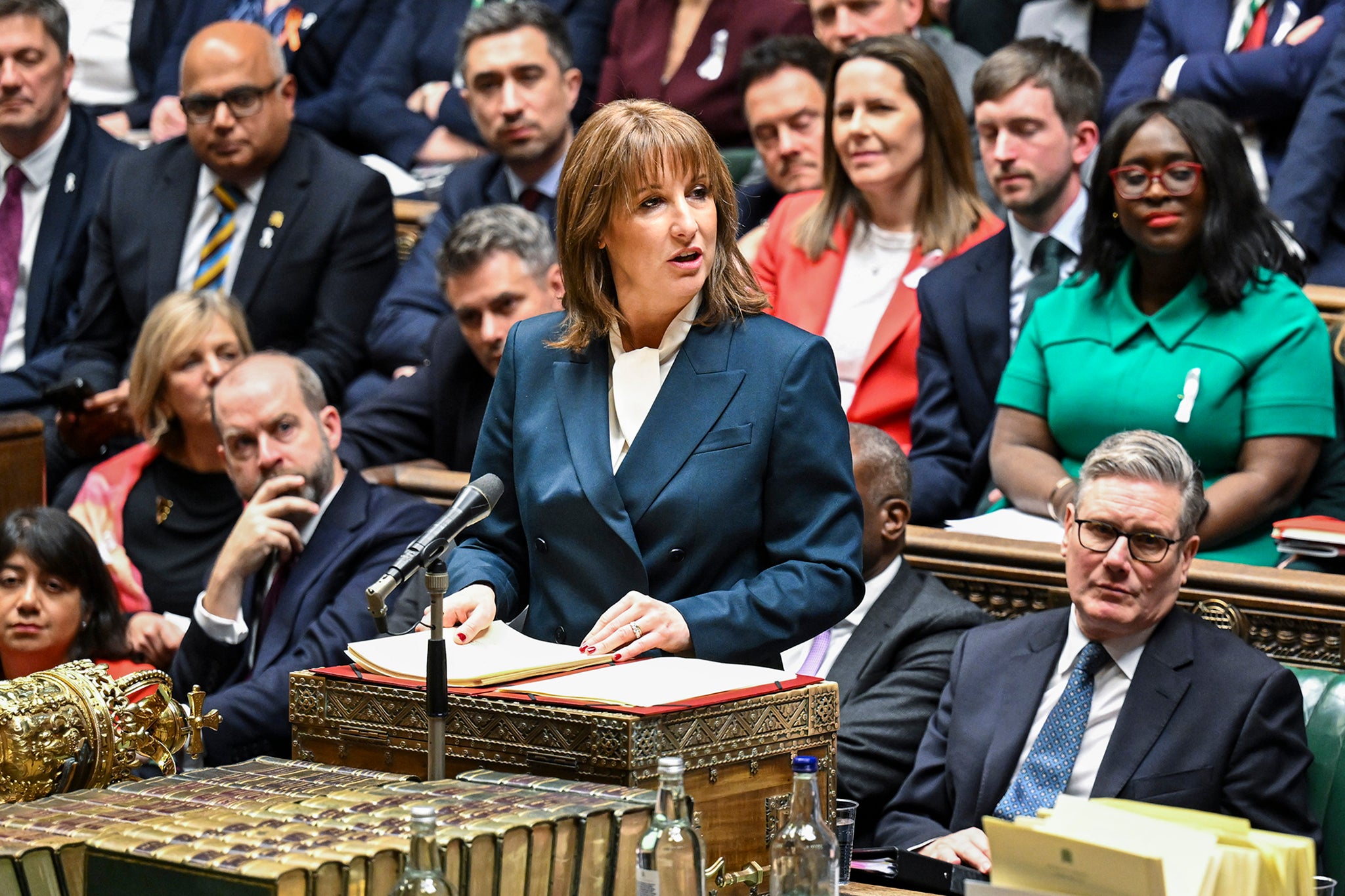Labour members of parliament haven’t had much to be cheery about since that confident morning last July when they were elected, very many for the first time, to the first Labour government in 14 years.
Yet somewhat against expectations, given recent events, it was the chancellor, Rachel Reeves, who gave them reason to smile, wave their order papers and cause a minor seismic tremor with their stomps of approval in Westminster, thanks to the reform of child benefit.
When Ms Reeves spoke passionately about how the social evil of child poverty was why she went into politics, she was speaking their language, for a change.
During the election, Sir Keir Starmer had virtually ruled out lifting the two-child cap, and as recently as the summer a change in policy was thought unlikely. Then came the welfare reform fiasco, the Labour back benches acquired a taste for power, and the prime minister’s position became increasingly precarious (and with it that of Ms Reeves), and change became inevitable.
Ms Reeves proudly presented the policy and made the very most of the moment – but there should be no mistaking that the force behind the shift in approach was the massed ranks of the delighted soft left on the benches behind her.
Ms Reeves made only the most glancing of references to welfare reform and some changes to the mobility scheme. There is little possibility she’d feel the need to, unlike the comprehensive spending review earlier in the year.

The upshot is that this Budget was, just as she proclaimed, very much a traditional “Labour Budget” of a kind not seen since before the age of New Labour. It was, in short, a tax and spend Budget, with some modest attempts to reduce the national debt towards the end of the parliament.
And tax “working people” Ms Reeves certainly will, whatever she claims. There is no disguising the prolonged pain that will be inflicted on taxpayers in the coming years. What Labour once termed “the squeezed middle” is about to have its pips squeezed even further.
The tax take is going up to 38 per cent of national income, a record since the Second World War, and, thanks to the extension of the freeze in the tax thresholds, every taxpayer will be paying more in real terms, and as many as 800,000 poorly paid people will be dragged into income tax for the first time.
It is true that she has targeted the wealthiest, as with the “mansion tax”, but many households on average incomes will be hit hard – after years of struggling with the cost of living crisis. By making saving for their old age more difficult through the changes to salary sacrifice, the pain will be felt well into old age by the young and middle-aged working in the private sector today. That does not feel fair, nor prudent in an ageing society.
Lauded by her colleagues as she was when she sat down, there is also no doubt that Ms Reeves’s reputation has suffered in recent weeks. The chaotic briefings and U-turns, crowned by the humiliation of her Budget being accidentally pre-released by the Office for Budget Responsibility (OBR), have hardly built confidence in her control of events. In the manifesto, Labour famously promised not to raise taxes – a basic message received, understood and trusted by the voters.
Since then, she has raised personal taxation in ways that would have seemed impossible when Labour was in opposition – 43 new taxes or tax hikes in the latest Budget alone, according to Tory shadow chancellor Sir Mel Stride.
She raised, broadly speaking, £40bn in her Budget last year, and another £26bn in this exercise, and a large proportion will go on social security. Whatever else, this is not what Labour said it would do, nor was elected to do last year. This time last year, Ms Reeves derided the idea of extending the freeze in tax thresholds and told the CBI, “I’m not coming back with more borrowing or more taxes.”
It would be a little harsh, not to say crude, that the British middle classes are paying to save Ms Reeves’s job; but the current political dynamic is perfectly clear, and greatly illuminated by the choices made in this Budget.
Much more than in her first one, this was aimed at shoring up support for her and for the prime minister’s leadership, and was more focused on the redistribution of income and wealth than growth and wealth creation. To that extent, she has strengthened her position. She has also built more “headroom” into her plans and placated the bond markets.
Yet, as the OBR points out, that margin of fiscal safety is “small by comparison to the wider risks around our fiscal forecast, which include risks from the uncertain yield from an array of complex tax changes, and pressures on welfare, health, education, asylum, defence, and local authority budgets”. Translated: things could still go horribly wrong.
Why are pensioners treated as such a special case? It’s starting to get silly
I can’t be the only woman who found Badenoch’s attack on Reeves chilling
Reeves’s Budget was like the office whip-round nobody could quite avoid
Reeves has put party before country – and they will hate her for it
This make-or-break Budget must match the chancellor’s fighting talk
Reeves must prove she has a rock-solid plan to free us from this ‘growth crisis’







